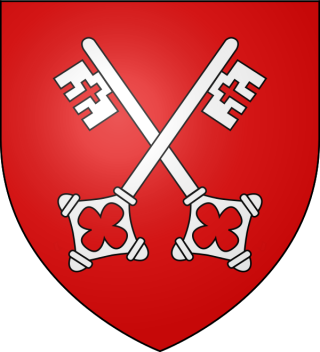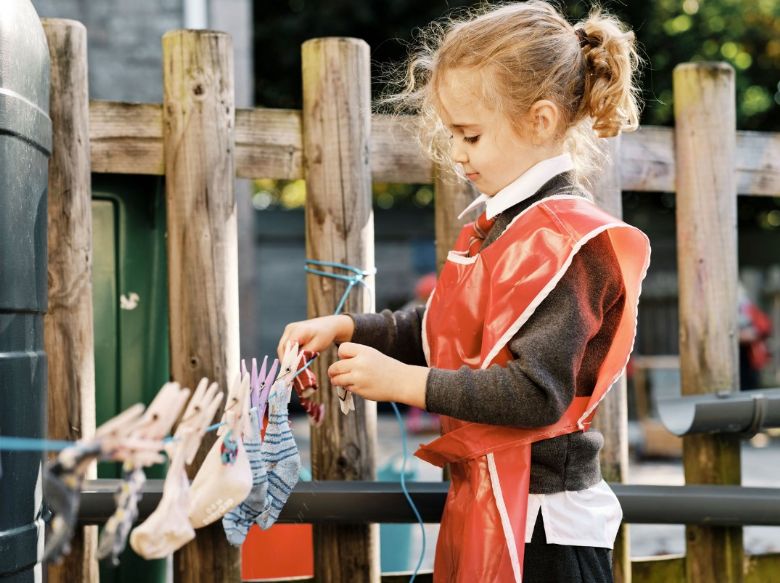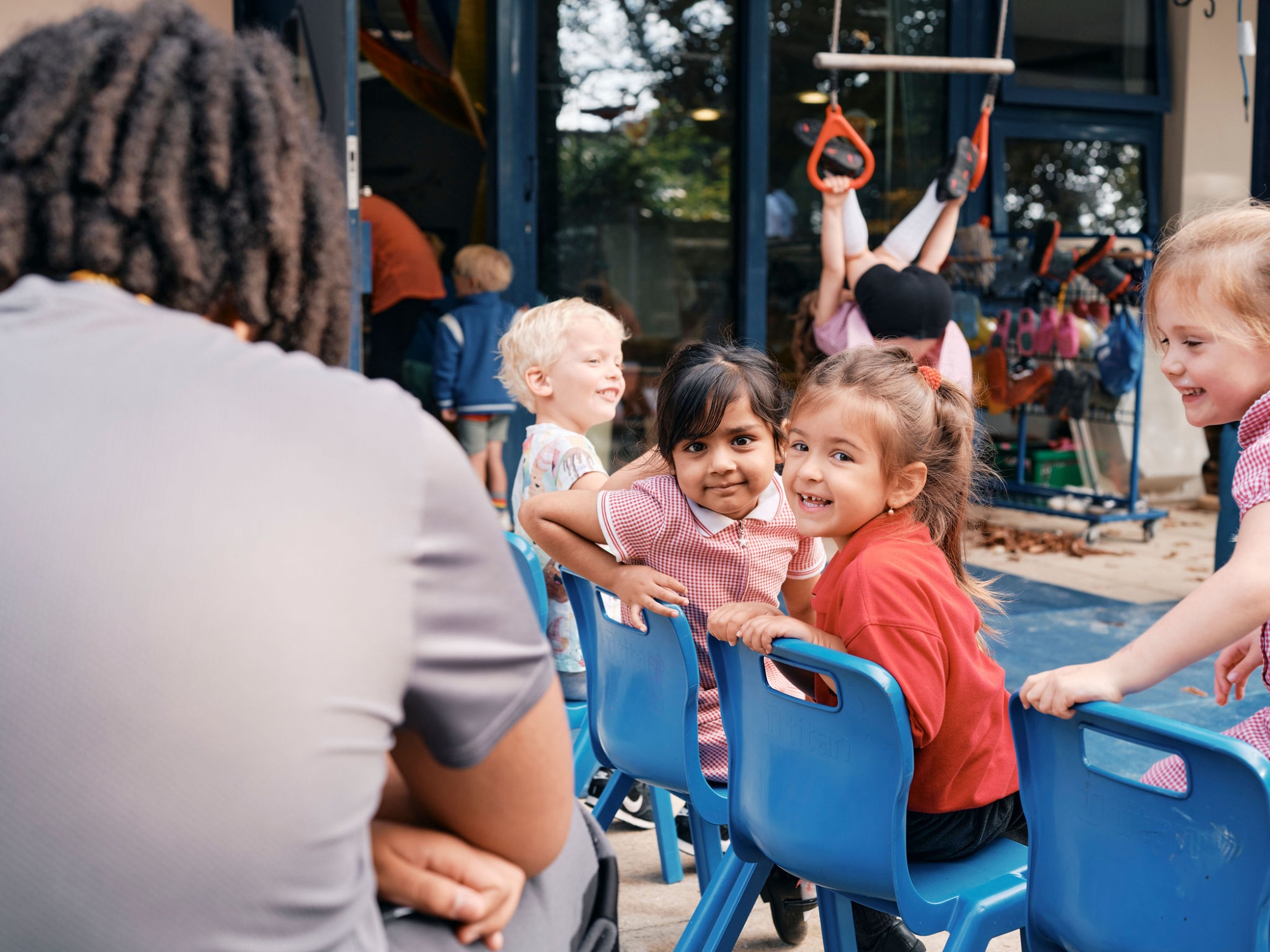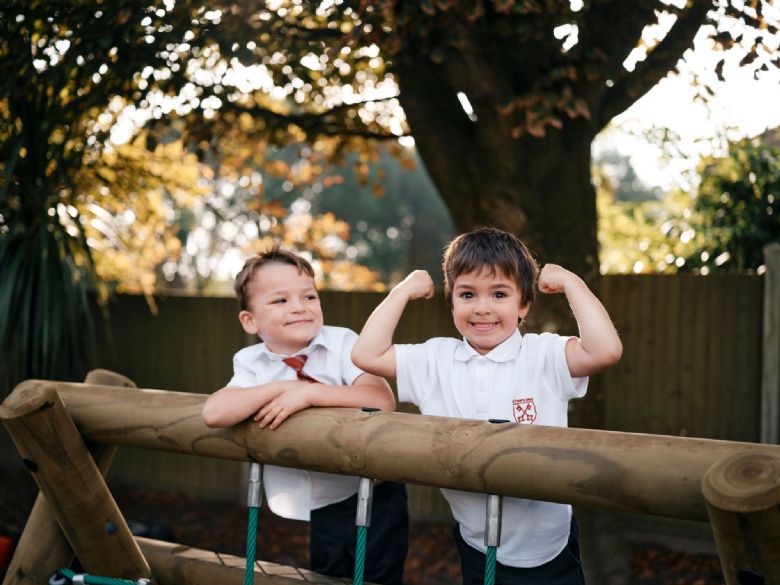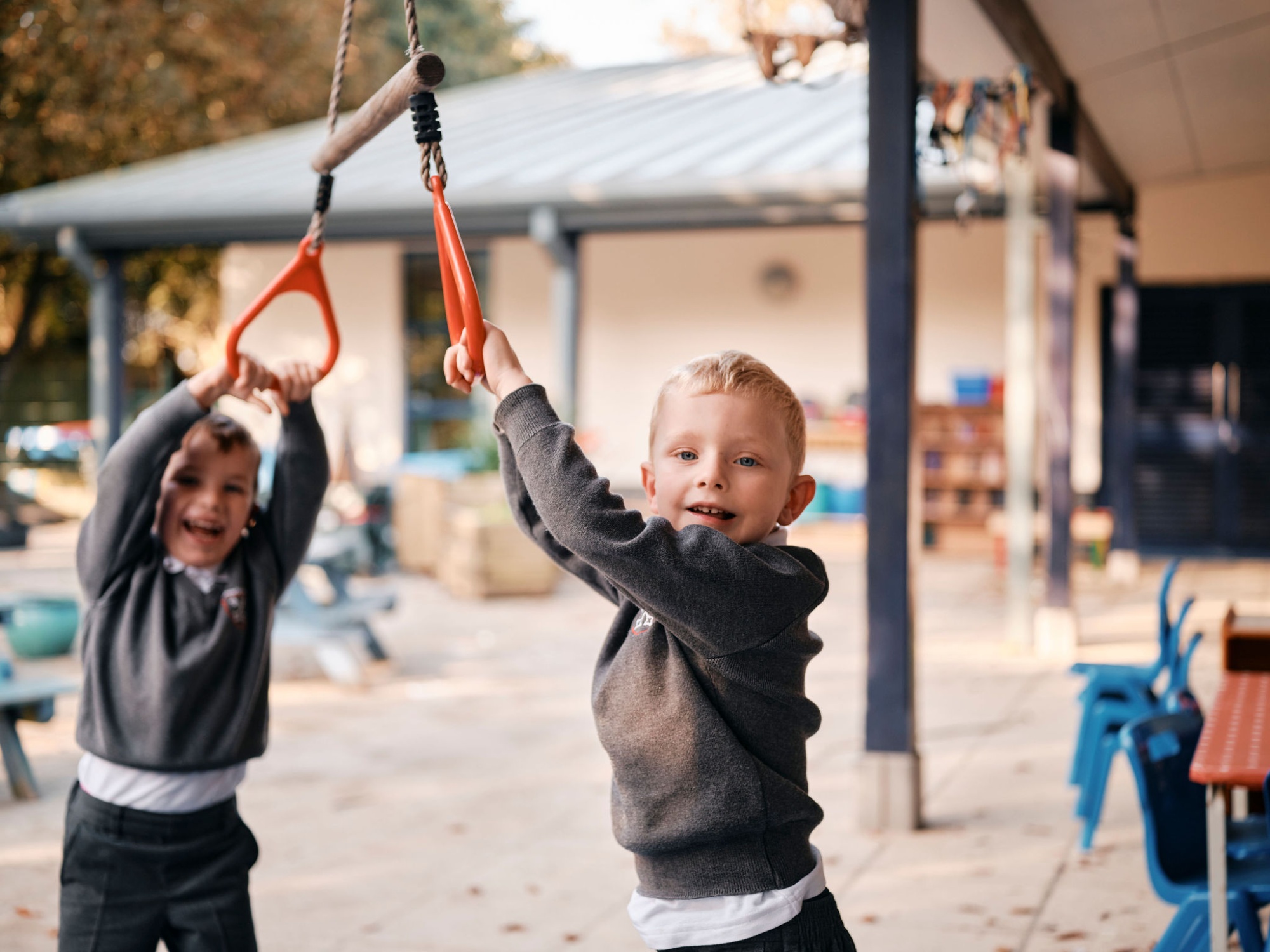Early Years Phase
St Peter's School has a 30 place Nursery class that is part of our school's Early Years Phase. If you are interested in your child attending our Nursery and would like to arrange a visit, please contact our school secretary.
All children are entitled to up to 30 hours’ free Nursery education each week during school term-time, from the beginning of the school year (September) in which they turn four.
Our Nursery and Reception classes work closely together as an Early Years Phase. This helps to ensure a smooth transition if children move into the main school at the end of Nursery.
While most children in our Nursery join our Reception class, transfer is not automatic or guaranteed. Parents must ensure they complete a school registration form available from the school secretary, which should be returned to the relevant catchment school. Reception places are allocated by the Education Department according to their admissions policy.
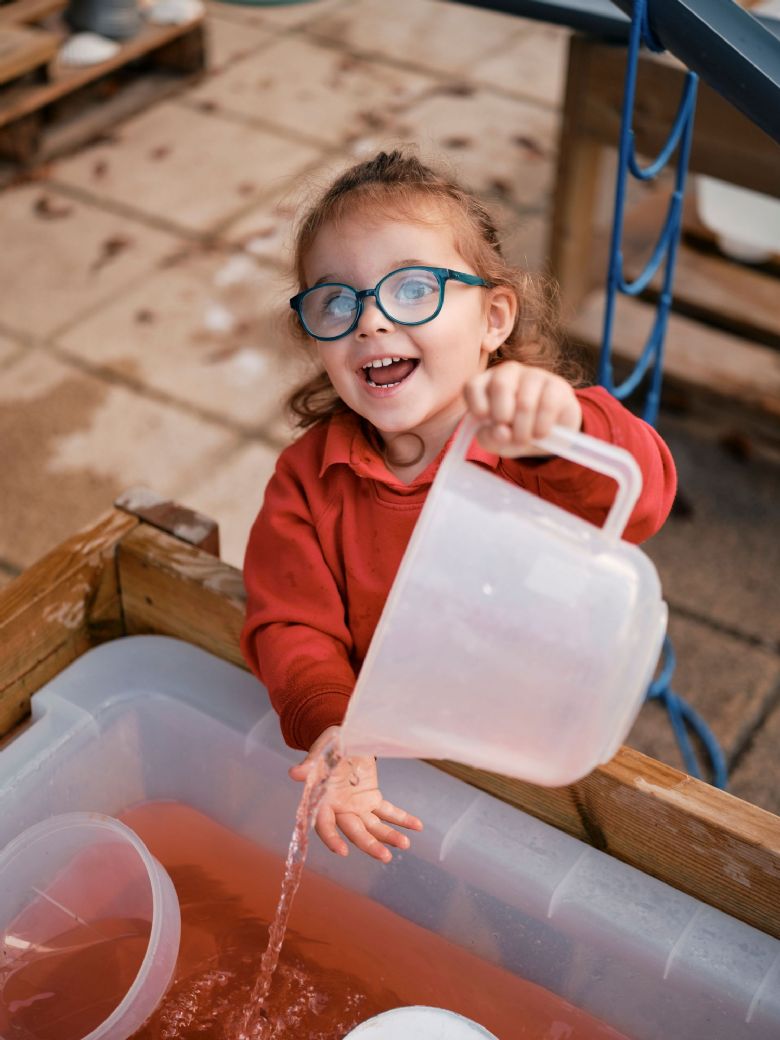
Home Visits
Parents are offered the opportunity for staff to make an informal home visit, in September before the start of term when their child starts in Nursery. This provides an opportunity for staff and children to meet in a relaxed and familiar setting, helping to build positive relationships from the offset.
Home visits are not compulsory; however feedback from parents has been overwhelmingly positive, so we strongly recommend parents take up this opportunity.
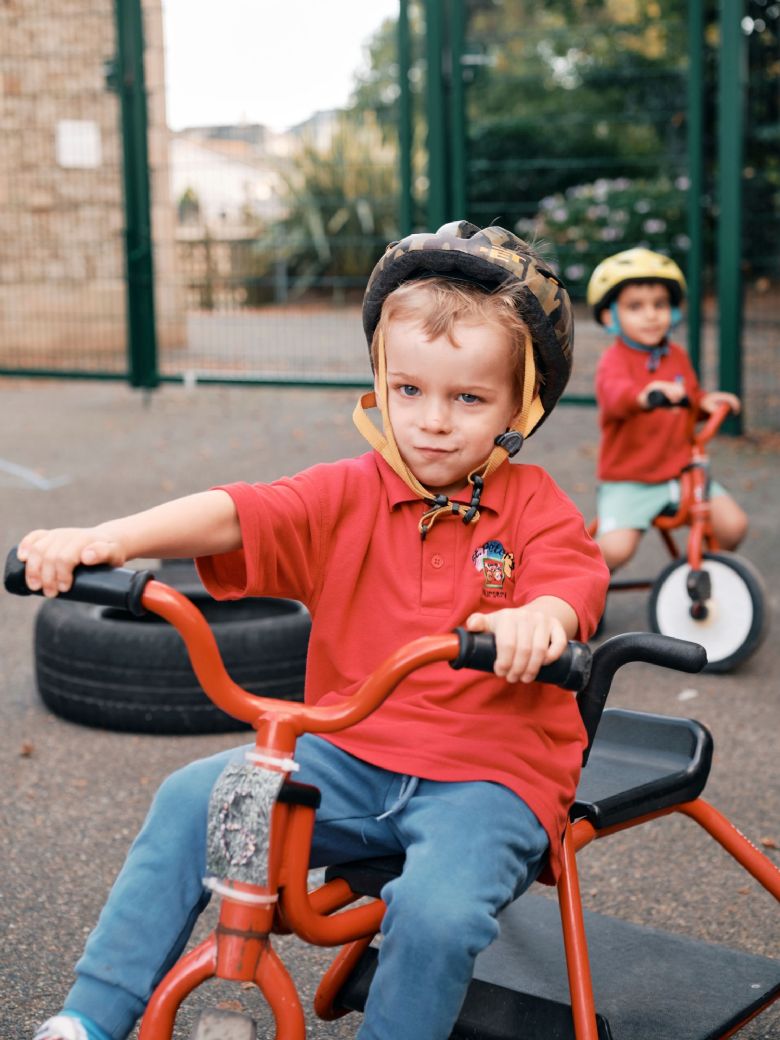
Starting Nursery
Children are given staggered start dates which begin after all home visits are completed. Children are introduced to Nursery in small groups, enabling them to have the maximum time possible with an adult on their first day, for settling in and adjusting to the new routines.
Parents are encouraged to leave their child after a short settling in time on their first day. Staff will always phone parents if necessary, and parents are always welcome to call and check how a child has settled.
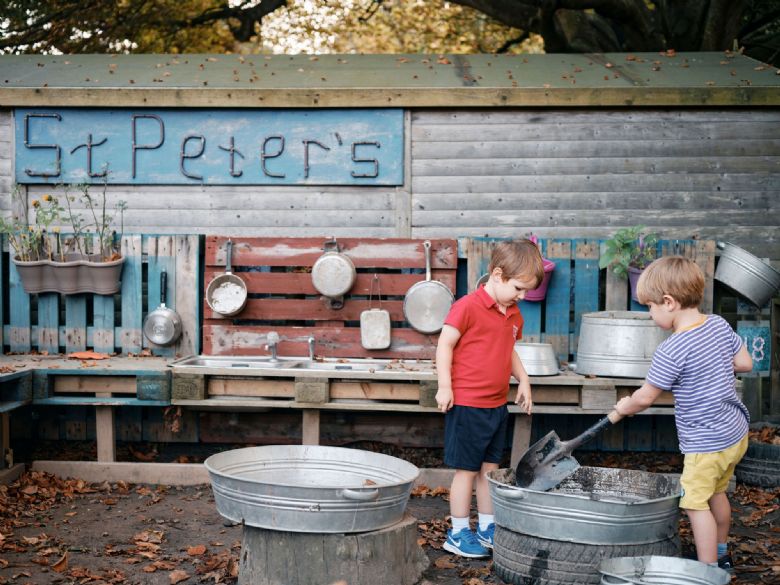
Partnership with Parents
Parents are their child's first teachers; our school motto, "Together we hold the keys to success," demonstrates how we aim to work in partnership with parents to have the best possible impact on each child's development and learning. We encourage a two-way conversation between staff and parents for sharing the trials and tribulations along each child’s individual learning journey.
We encourage open and honest communication and ask that parents share any relevant information about their child on a daily basis. Likewise, staff will try to ensure parents are fully informed about significant events from their child's day. There are always staff on hand to chat to parents at the beginning and end of the day, or appointments can be made for more in-depth conversations.
Parents are kept informed about their child's learning through a newsletter each term, outlining the new skills the children will be learning, trips and important dates for the term ahead. There is a white board in the welcome area with daily updates for parents, and regular newsletters are sent home from Nursery and the main school to keep parents up to date with events and activities. Letters are usually sent electronically, but paper copies are also available if required.
We welcome parental support with trips and for special events. For further information, please see our section, 'Involving Parents'.
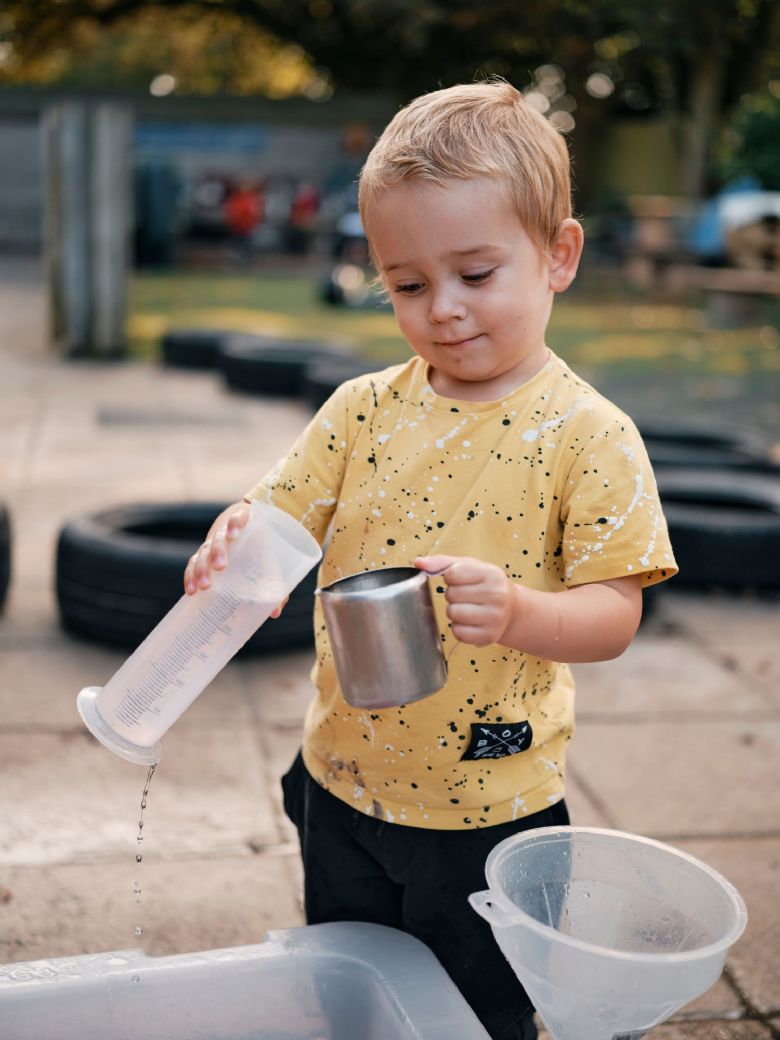
Nursery Clothing
Uniform is not compulsory in Nursery, although a red T-shirt and sweatshirt are available to purchase if parents wish their child to wear them. We ask that children wear practical clothes, so they can move about and experience everything on offer and that encourage independence when going to the toilet.
Aprons and waterproof suits are provided for messy activities, but being young and curious, children inevitably will explore and get messy at some time, so we ask parents not to dress their child in their best clothes!
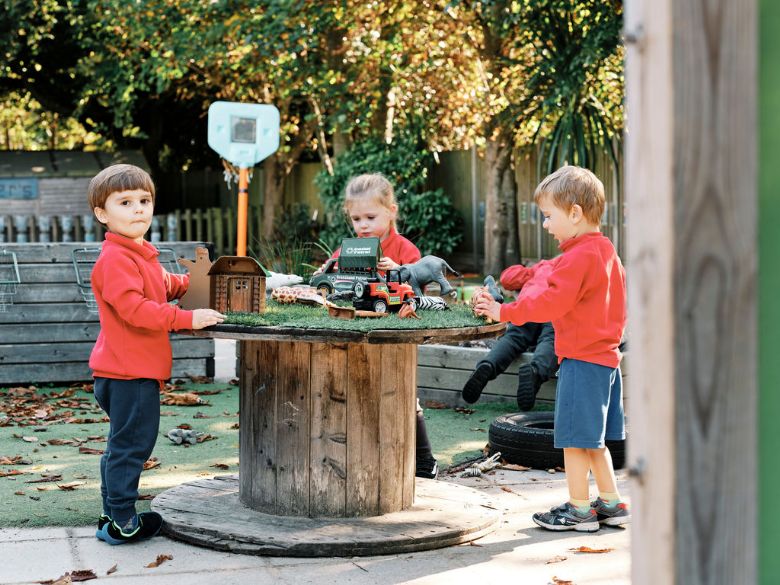
A Day at Nursery
The morning session will begin at 8.30am. A member of staff will open the door to greet the children. Children are encouraged to do their morning jobs independently, such as hanging up their coats, putting away their lunch and checking in their name. Hometime is at 2.50pm Children are handed over to their parents by a member of staff at the end of the school day.
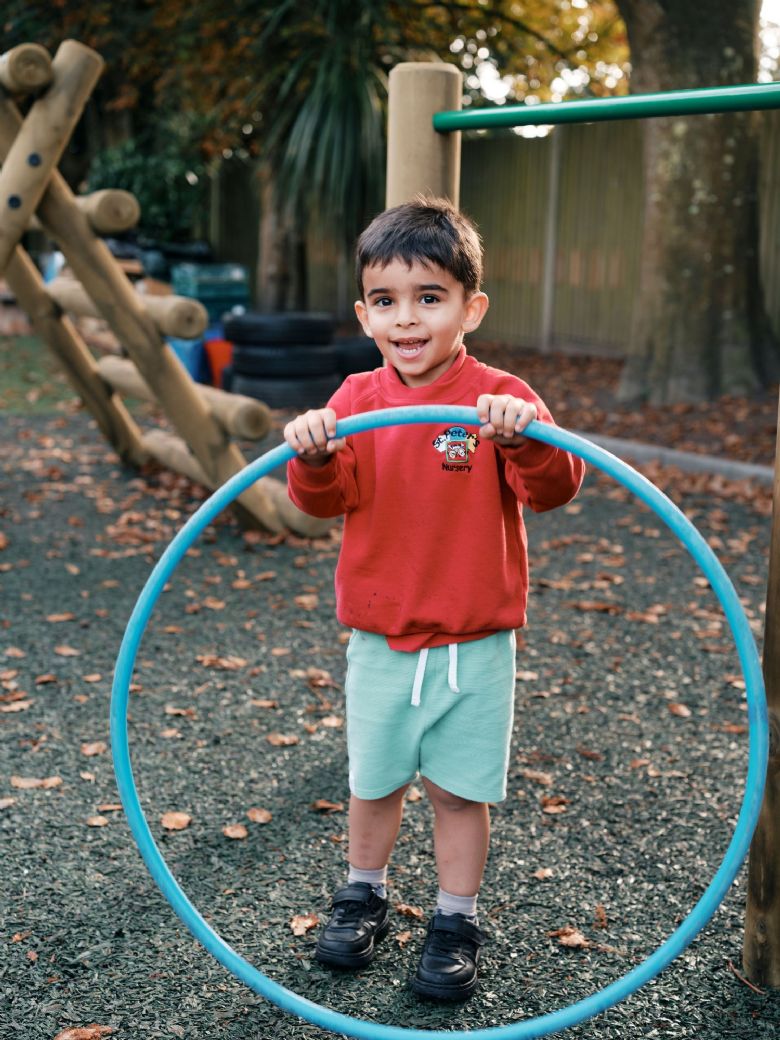
We believe that every child is unique and will develop in different ways and at different rates. Every individual is at a different stage along their learning journey. We plan, ‘In the moment‘, where possible, to meet every child’s interests and needs.
Children are born ready, able and eager to learn. They actively reach out to interact with other people and the world around them. Development is not an automatic process, however, it depends on each unique child having opportunities to interact in positive relationships and enabling environments.
In the Early Years we use, 'Birth to 5 Matters,' as guidance to understand and support each child’s development and pathway along their learning journey.
There are 7 areas of learning and development underpinned by three characteristics of effective learning: engagement, motivation and thinking.
Three areas of learning and development are particularly important for igniting children’s curiosity and enthusiasm for learning, and for building their capacity to learn and to thrive. These three areas, known here as the prime areas, are:
- Personal, Social and Emotional development
- Physical Development
- Communication and Language
We also support children in four specific areas of learning and development, through which the three prime areas are strengthened and applied. The specific areas are:
- Literacy
- Mathematics
- Understanding the World
- Expressive Arts and Design
Playing and exploring, active learning and creating and thinking critically support children’s learning across the 7 areas of learning.
In the Early Years, the staff learn about individual children by taking the time to get to know them, talking to them,interacting with them and observing them as they play, explore, learn and interact with their friends. Staff use photographs as evidence of observations. They reflect on and analyse their observations and use these to plan further experiences and learning opportunities to support and extend each child’s individual development. This is an on-going process throughout the year.
|
|
|
|
|
|
|
|
|
Please download our handbook for further information.
